
written by Eladrin
Can you believe it’s the end of the year already? With the holidays fast approaching, it’s time for our traditional review of how the year went, with a little glimpse towards the future.
After Aquatics shipped at the end of 2021, I started taking over more of Stellaris development in preparation for seizing control taking over as Game Director in early 2022, freeing Daniel Moregård to move on to his next project. I’m quite thankful for the opportunity, and very happy to be given the game in the state that it was in – thanks to the efforts of the Custodian Initiative and the rest of the team, I had a pretty easy time sliding in.
Let’s take a look at what happened during the year, and a glimpse at the near future.
The beginning of the year brought us our first Open Beta of the year and 3.3 Libra.
In Libra, Unity became a core resource, the Spiritualist ethic became more viable, Planetary Ascension was added, and changes were made to Bureaucracy and Empire Size. The Permanent Employment civic was added, and there were some major AI improvements.
We also had another Stellaris Dev Clash, full of many Earths and some cruel betrayals. (And tragic moments, like when I ran out of lines to The Final Countdown for my fleet names.)
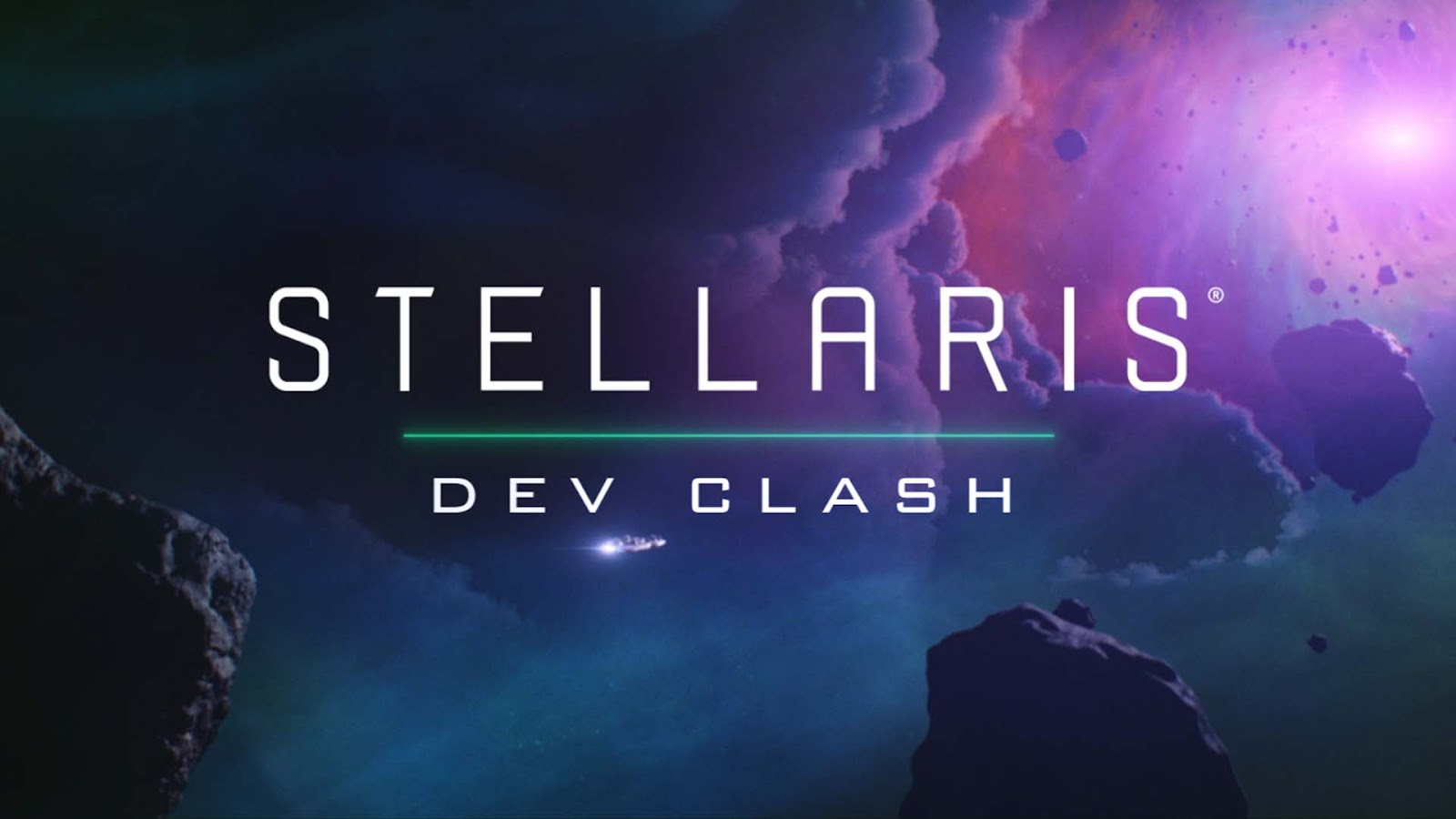
Some of these changes were made laying the foundation for further planned changes in 3.4 Cepheus alongside Overlord.
In May we released 3.4 Cepheus alongside the Overlord expansion.
Prior to 3.4, being vassalized was essentially a delayed Game Over – at some point your overlord would integrate you and you would suddenly lose. The restrictions on subjects were also far too strong – as you were unable to expand or really pursue any diplomatic activities, you had little hope of escaping that fate.
One of Overlord’s primary focuses was to make it possible to enjoy playing in either role. Specialist Empires and Agreement Negotiation went a long way to achieve that goal.
Hyper Relays and Orbital Rings provide useful mid-game constructions which change the game significantly when they arrive. There was also more AI work, and some quality of life improvements like Construction Ship Automation and improvements to Planetary Automation.
Cepheus also brought us the Situations system, a powerful tool for content that we’ll be using for a long time.
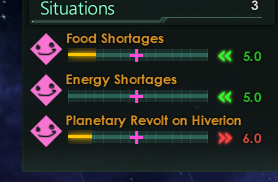
The WIP situations didn’t seem too bad…
Cepheus also brought us the biggest hotfix I’ve ever done in twenty-something years in the gaming industry, which fixed a huge number of launch issues. I’m very proud of how the community was able to help us identify the problems and the team came together to fix them ridiculously quickly, but I also accept the blame for the need for it. I approved (and pushed for) several changes and additions after I should have frozen development, some of which destabilized the build. These processes exist for a reason, and we will continue sticking to them and err on the side of caution whenever possible.
In the end, I’m quite happy with where Overlord landed, with most of the major issues resolved within the first few weeks, though getting the right balance for AI vassalization acceptance has been an ongoing challenge.
Overlord also produced my favorite Stellaris trailer thus far:
Treacherous little foxes!
After the summer we surprised everyone with back-to-back releases:
Rise a Knight!
The Toxoids Species Pack brought the biggest narrative origin we’ve ever created, and another that killed more leaders by the end of the first month than you generally lose in an entire game.
3.5 Fornax included more AI, performance, and automation work too, to the point where we felt we had to add an easier Civilian difficulty setting and lower the default setting. We also added some more increased difficulty settings at the same time, including Difficulty Adjusted AI Modifiers and All Crises.
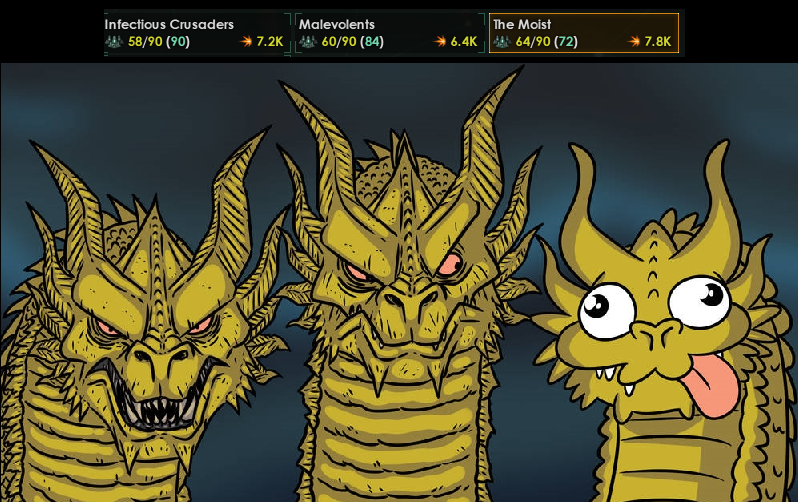
Names that inspire terror in your enemies.
It was only a few weeks after Toxoid’s release that we jumped straight into our next Open Beta. With a major fleet rebalancing and reworks to how Ascension Paths worked, we wanted to gather a lot of feedback as early as possible, with time for some iteration.
Orion also added things like Galaxy Shapes, reworks to the psionic covenants, the Holy Covenant spiritualist Federation type, and accessibility improvements like our first iteration on Text-to-Speech.
It’s hard to describe how tremendously successful the Orion Open Beta was. Within the first couple of days we had already smashed our unique user and feedback goals for the entire month.
Thank you once again for all of your help making 3.6 Orion as good a release as it could be.
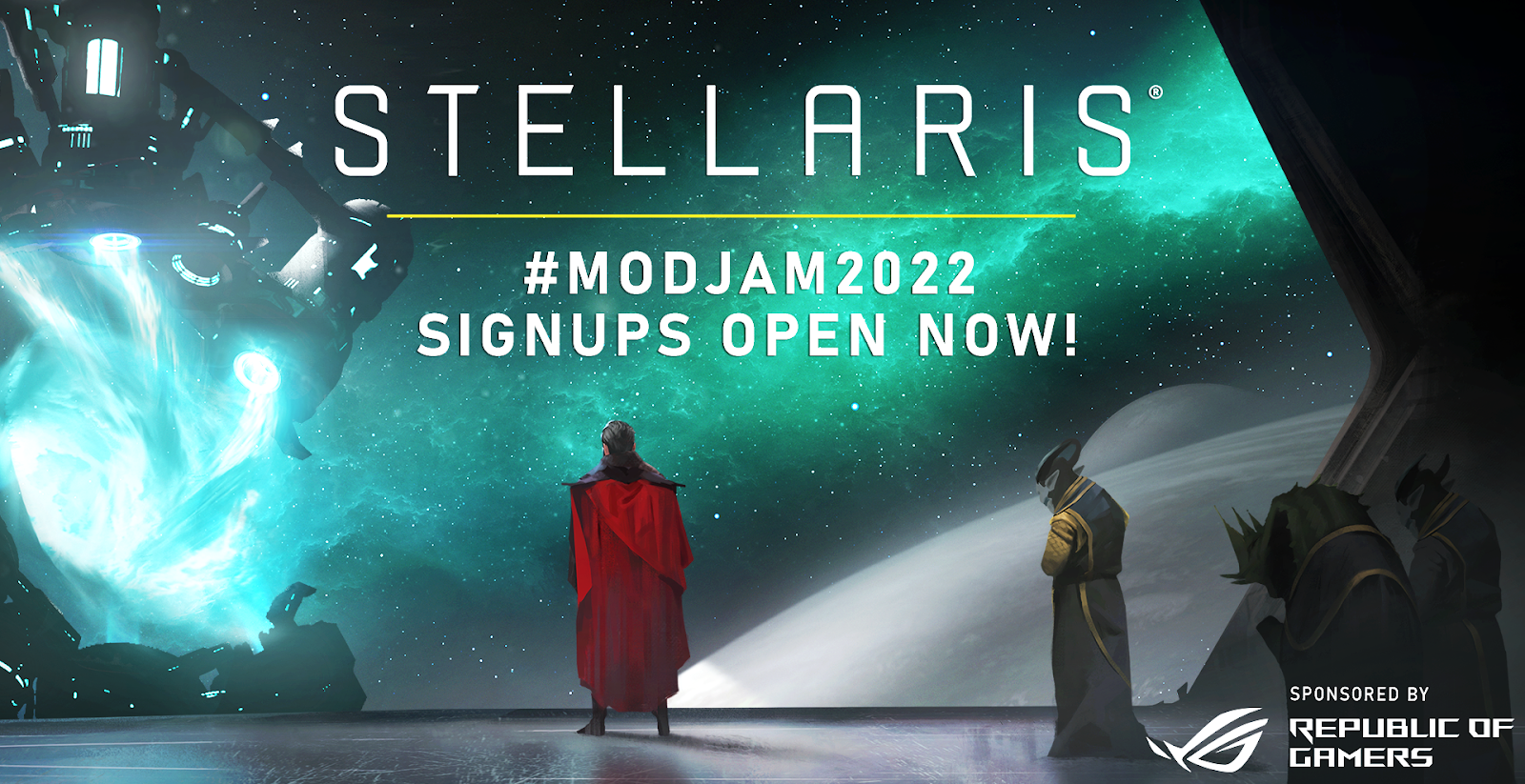
As mentioned last week, we’re holding a Mod Jam over the holidays and signups have started. Modders will get three weeks to make… Something.
The winning contribution (by community vote) will get a ROG TUF H3 Wireless Headset from our sponsors at ROG, while 2nd and 3rd place will each get a ROG Keris Wireless Gaming Mouse!
The topic will be announced tomorrow, so check the thread out and join in!
That sounds like a lot. It was a lot. We had a very good year, and I feel that the Custodian Initiative has proven itself handily.
In case you’re wondering exactly how much “a lot” is: 2022 PATCH NOTES
There are 30 pages of patch notes there, roughly the equivalent of 4.28 Pierres.
As a direct result of how successful the Orion Open Beta was, we’ve decided to push a few things to another Open Beta today. These primarily consist of changes to how AIs calculate acceptance, as well as an economic change that sets a floor to how low cost reductions can go.
STELLARIS 3.6.1 + AI OPEN BETA PATCH NOTES
[expand type=details]
########################################################
################ VERSION 3.6.1 + Open Beta ##################
########################################################
– Capped resource upkeep/cost/production reduction modifiers to -90%
– A pass on automated colony designation has been made to improve decision making and utilize newer scripting techniques.
– The Refinery planet and habitat designations now grant 15% bonuses to refiners, translucers, chemists, and all strategic resource mining professions. The benefit from Environmental Ordinance Waivers has been increased from +5% to +10%.
– The default Habitat designation now acts similarly to the default Colony, providing stability and amenities while the habitat population is low.
– Switched a number of leviathans (and their reanimated versions) to line computers instead of artillery.
– Planetary and Sector Automation should once again upgrade Capital buildings.
– Fixed a bug preventing many colony designations from being selected by auto-designation if Sector Automation was active.
– AI now bases acceptance for taxes/subsidies on economic impact to itself, rather than Loyalty alone.
– AI overlords now value agreements that improve subject Loyalty, depending on the overlord’s personality and the subject’s power level.
– AI acceptance of discrete agreement terms can now be scripted like Loyalty can, separately for subjects and overlords.
– Significant revisions have been made to Static Galaxy creation to bring them in line with Random Galaxy creation.
– Fixed a number of bugs where empires were not set up properly for static galaxies. E.g. they were not given starbases, and secondary species were ignored.
– Various galaxy generation and game start on_actions are now called during static galaxy generation as they would be normally.
– Added an “effect = {}” field for static galaxy systems that will execute on that system after the galaxy is generated
– Added a commented-out simple example static galaxy for reference.
[/expand]
Please note that the 3.6 Orion Open Beta (checksum: 0f55) is an optional beta patch. You have to manually opt in to access it.
Go to your Steam library, right-click on Stellaris -> Properties -> betas tab -> select “stellaris_test” branch.
Don’t forget to turn off your mods, they will break.

INSERT MANDATORY DOGGO
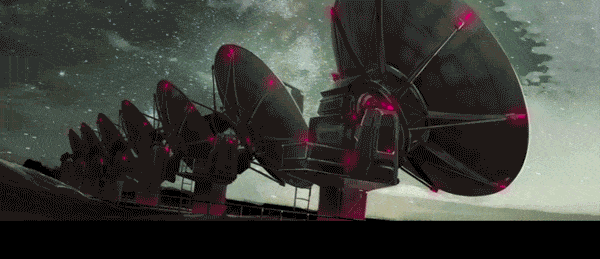

Dev Diaries will return on the 12th of January. See you next year!


